Publications & Studies
Latest Publications
Advanced Filter
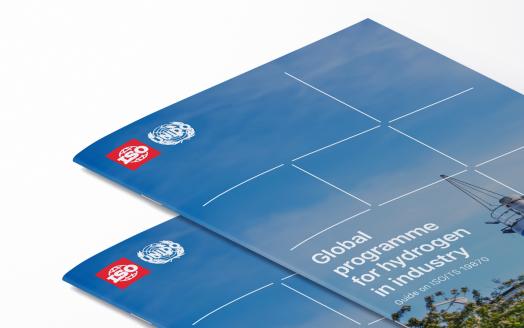
ISO/TS 19870 is a comprehensive methodology for determining greenhouse gas emissions across the hydrogen value chain, from raw material extraction to the consumption gate. Developed through broad international consensus, it is designed to harmonize and streamline the partial carbon footprint calculation (the GHG emissions of specific segments of the supply chain) for various technology pathways in the hydrogen value chain.
UNIDO and ISO have developed the Guide to ISO/TS 19870 to make this standard more accessible to practitioners, industry professionals, and government stakeholders. The guide refers to ISO's Life Cycle Assessment (LCA) and Carbon Footprint of a Product (CFP) phases and the original ISO/TS 19870 sections, while providing relevant context and explanations. Through this approach, the guide supports ISO/TS 19870, addresses common questions, and enhances its visibility and recognition.
By promoting the use of ISO/TS 19870, the guide strengthens ISO/TS 19870 position as the international benchmark for GHG assessment in the hydrogen value chain, encourages adoption by a broader range of stakeholders, and fosters its implementation in diverse economies—ultimately contributing to a more unified global hydrogen market.
Access the Guide here: ISO - Global programme for hydrogen in industry - Guide on ISO/TS 19870

UNIDO, in cooperation with the Breakthrough Agenda, and with early-stage inputs by the World Bank and
IRENA, developed a mapping exercise of financial and technical initiatives on clean hydrogen for developing
countries to shed light on ongoing financial and technical assistance initiatives. The mapping exercise was
distributed to development finance institutions, international development agencies and governments to
identify ongoing hydrogen assistance measures throughout its value chain.
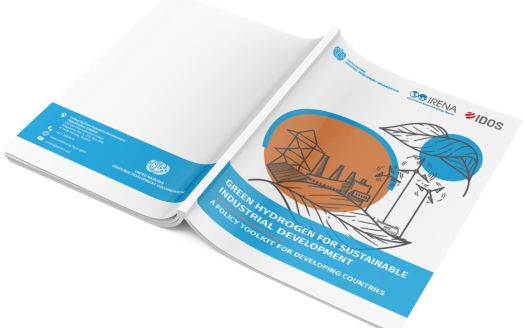
This comprehensive publication, UNIDO, IRENA, and IDOS, is the first to encompass the entire green hydrogen value chain - including backward linkages, production and end-use - with a specific focus on developing countries. It highlights green hydrogen's transformative potential, offers strategic guidance for equitable benefits distribution, and includes detailed policy sheets that outline the policy options to this end.
The report challenges the conventional view of green hydrogen as primarily an export commodity from countries rich in renewables but lacking in industrial power. Instead, the focus is shifted to the potential of green hydrogen to drive economic growth, environmental sustainability, and social progress within these countries in order to ensure the distribution of potential benefits in the most equitable manner.

Cooperation with universities and the academic community is of paramount importance due to their expertise and research capacities; this collaboration plays an essential role in accelerating the energy and hydrogen transition. We are pleased to partner with Professor Ad van Wijk to present his excellent book: "Green Energy for All: How Hydrogen and Electricity Carry Our Future." We highly recommend this book, which is available as a free PDF for readers, because we believe in the power of knowledge sharing.
This insightful book emphasizes that the transition to a sustainable energy system involves more than simply building solar panels and wind turbines. It advocates for a comprehensive redesign of the entire energy system to effectively balance the supply and demand for sustainable energy across time and space.
Moreover, Prof. van Wijk and his co-authors argue for a broader perspective on energy systems, which are part of an integrated, global system for supplying energy, water, materials and food.
You can find more information about the book here: Green Energy for All.
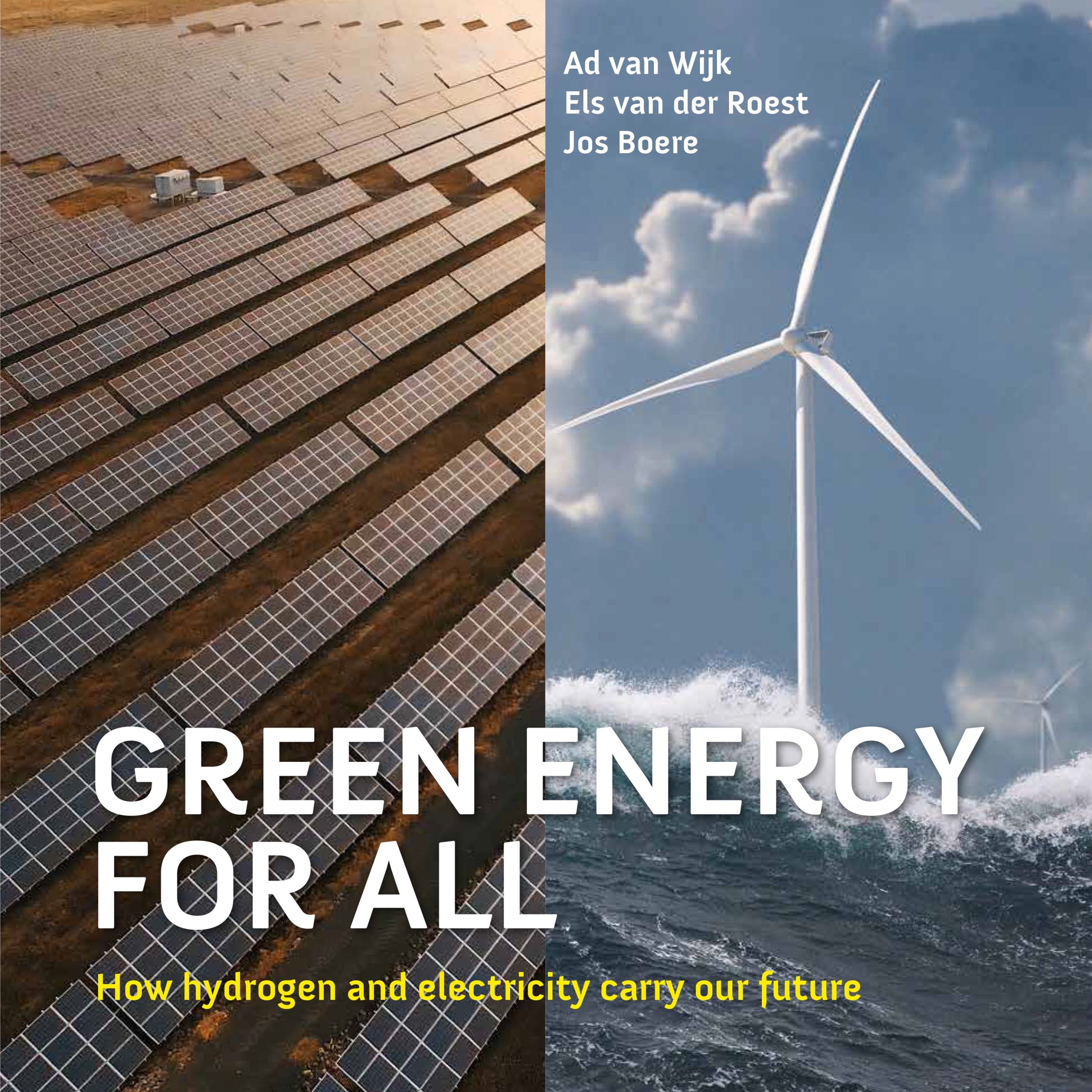
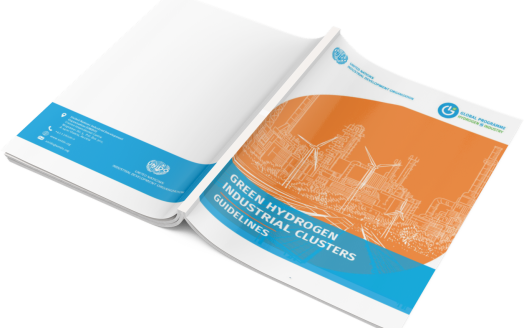
VIENNA – The United Nations Industrial Development Organization (UNIDO) has published the first edition of Green Hydrogen Industrial Clusters Guidelines to help governments and industries accelerate industrial decarbonization by replacing fossil fuels in hard-to-abate sectors.
Nearly all countries have committed to decarbonize their economies in the coming decades in line with the Paris Agreement to limit global warming to 1.5°C. The industrial sector is a significant contributor to global greenhouse gas emissions, and therefore plays a critical role in meeting these ambitious goals. Renewable or green hydrogen, produced via water electrolysis using renewable electricity, is an essential element of the clean energy transition, particularly in hard-to-abate sectors.
UNIDO defines green hydrogen industrial clusters (GHIC) as industrial regions or clusters that share green hydrogen (production, transport and use) and renewable energy electricity, in addition to other resources for different purposes including material production, heating and cooling, local mobility and industrial feedstock. These clusters have a great potential to accelerate the uptake of green hydrogen in local industry, supporting decarbonization and the development of new low-carbon industries.
UNIDO has developed a model for GHIC that aims to accelerate the application of locally produced green hydrogen in industrial zones, clusters and parks. It aims to serve as a replicable model through which countries can deploy green hydrogen technologies to achieve their emissions reductions and industrial production goals, as well as generate economic and social opportunities.
Green Hydrogen Industrial Clusters Guidelines provides information on the multi-stakeholder engagement and coordination required for the design and implementation of an overarching policy framework for the development of the clusters.
Gerd Müller, UNIDO Director General, said he hopes that the guidelines “will be useful for policymakers, industry leaders and other stakeholders as we work together to achieve the goal of sustainable and inclusive industrial development, and create a better future for all.”
Matteo Michelli from Deutsche Energie-Agentur – dena (German Energy Agency), who contributed to publication, said, "In the realm of green hydrogen reports, this work stands out, combining both a deep-dive and an actionable guide. This is achieved by first providing a comprehensive list of challenges and enablers for using green hydrogen in industrial clusters and then identifying concrete steps to bring green hydrogen industrial clusters from an idea to implementation and upscaling."
Another contributor, Sabina Krøigaard from Denmark’s GreenLab, said, "Until now, creating a green hydrogen industrial cluster has been the work of pioneers spread across the globe. This publication offers inspiration and concrete tools for moving forward and empowers curious entrepreneurs to take action."
Also contributing to Green Hydrogen Industrial Clusters Guidelines were authors from Future Cleantech Architects, Impact Hydrogen and New Energy Coalition.
UNIDO supports Member States in developing green hydrogen economies through project development, stakeholder engagement and dialogue, and by offering best practices and guidelines as part of its Global Programme for Hydrogen in Industry.
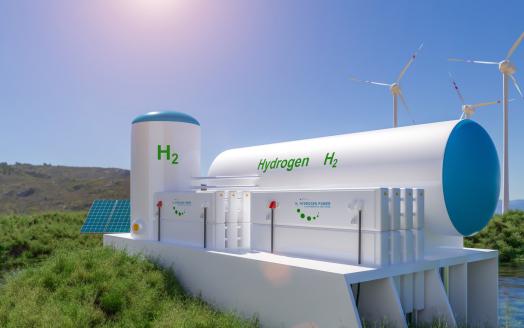
A HYDROGEN ECONOMY: OPPORTUNITIES FOR DEVELOPING COUNTRIES
Produced from renewable energy sources, green hydrogen (GH2), also known as renewable hydrogen, is the fuel of the future. It is clean, storable and portable, and can be blended into existing energy networks and integrated with current infrastructure. Green hydrogen and low-carbon hydrogen[1] are key to decarbonization of hard-to-abate industries such as steel production, cement, chemicals and heavy transport, which together account for 30 per cent of global CO2 emissions. In short, hydrogen can help countries around the world achieve their climate goals.
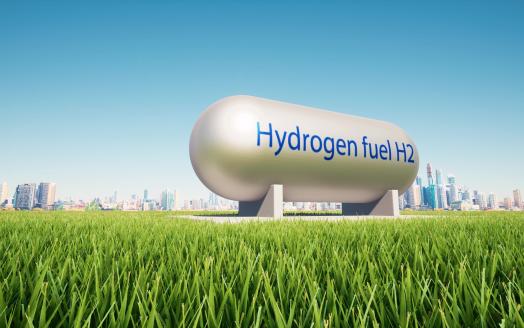
This document presents a summary of project activities carried out in Egypt. The project aimed to assess the potential for a low-carbon hydrogen market in Egypt, strengthen the country‘s readiness for market development and promote its usage for industry decarbonization. The project supports public and private institutions in Egypt with knowledge of low carbon hydrogen production potential, current and future demand scenarios, development of business models and creation of value chains.
The project is part of the UNIDO‘s Global Programme for Hydrogen in Industry. Through its Programme, UNIDO aims to influence and guide the development of market polices, standards, skills, financing instruments, innovation and coordination between key stakeholders that play an essential role in the development of a just and sustainable hydrogen economy. Promoting tangible projects to accelerate the local uptake of green hydrogen in industries of developing countries and transition economies is a key element of the Programme.
The project in Egypt was led by UNIDO, together with two strategic partners: Italian University, Politecnico di Milano and the Environmental Compliance Office - Federation of Egyptian Industries.


